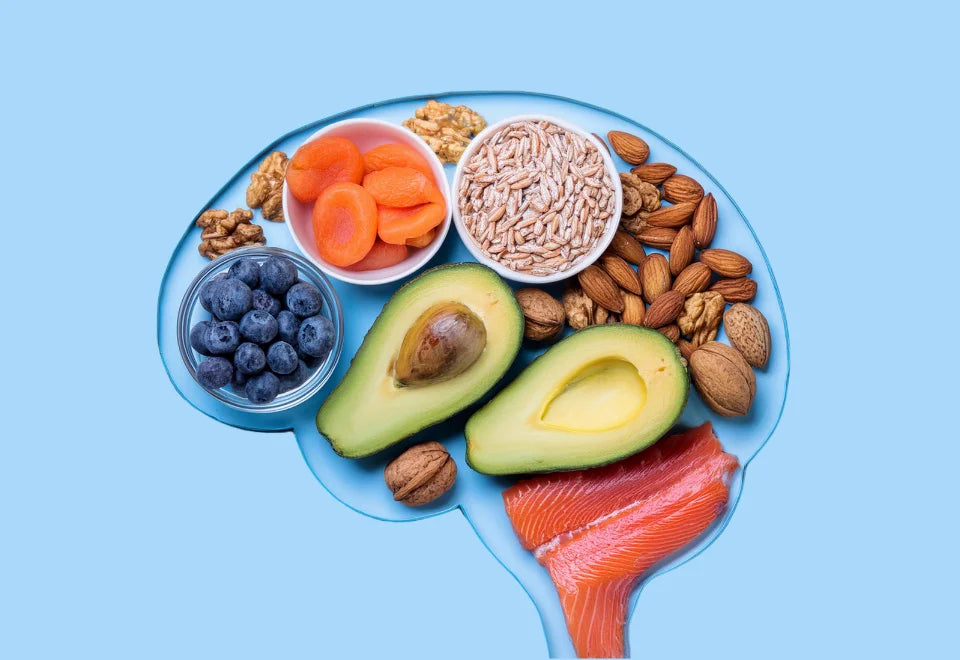Stress can negatively impact your gut health in unexpected ways. It decreases the diversity of beneficial bacteria, weakens the intestinal barrier, and triggers inflammation. These disruptions not only contribute to mental health issues like anxiety and depression but can also lead to physical problems such as inflammatory conditions, metabolic disorders, autoimmune diseases, potentially impacting your longevity. Maintaining gut health is essential for overall well-being and long-term vitality.
Protect Your Gut:
- Diet: Include fermented foods, prebiotics, and anti-inflammatory foods.
- Stress Management: Practice mindfulness, exercise regularly, and try deep breathing.
- Testing: Consider microbiome testing to track and improve gut health during stress.
Managing stress and supporting your gut can improve both mental and physical health over time.
Research Findings: Stress Changes Gut Bacteria
Controlled studies have provided insights into how stress impacts gut bacteria, reinforcing the connection between the brain and gut.
Stress Reduces Gut Bacteria Variety
Research consistently shows that stress reduces the diversity of gut bacteria. A 2020 study in Frontiers in Microbiology highlighted that chronic stress shifts bacterial populations, reducing certain strains while encouraging the growth of others [1]. For example, mouse studies found that just one instance of social defeat stress led to a decrease in Lactobacillus levels [2]. These findings align with earlier observations of a decline in beneficial bacteria under stress.
How Stress Disrupts Gut Balance
Stress affects gut health through several mechanisms that work together:
| Mechanism | Effect on Gut |
|---|---|
| Mucus Production | Changes bacterial habitats |
| Gut Motility | Alters microbial distribution |
| Bacterial Gene Activity | Stress hormones influence bacterial function |
Human studies have shown similar results. For instance, acute psychological stress can increase intestinal permeability within just a few hours [3].
Lab vs. Human Research Results
Animal studies provide clear evidence of stress-induced changes, but human research reveals a more nuanced picture:
"Animal studies show faster changes due to controlled conditions, while human research reveals decreased microbial diversity under stress."
Interestingly, stress-induced shifts in gut bacteria can last weeks after the stressor is gone. For example, altered gut metabolites have been observed up to three weeks post-stress [2]. This lingering effect might explain how short-term stress can lead to longer-term health issues.
sbb-itb-55c436e
Health Problems from Stress-Related Gut Changes
Stress-induced changes in gut bacteria don't just stay in the gut - they can lead to measurable health effects through what's known as the gut-brain axis.
Mental Health and Gut Bacteria
The link between gut bacteria and mental health is closely tied to the gut-brain axis. Studies have shown that stress-related shifts in gut bacteria can have a direct impact on mental well-being.
A study highlighted this connection. Researchers found that women with more diverse gut microbiomes reported 25% lower negative mood scores during stress tests compared to those with less diverse microbiomes.
Here’s how these changes influence mental health:
| Symptom | Mechanism |
|---|---|
| Anxiety & Depression | Reduced production of neurotransmitters that regulate mood |
| Stress Response | Altered functioning of the HPA (hypothalamic-pituitary-adrenal) axis |
| Emotional Processing | Disruption in vagus nerve signaling |
| Mood Swings | Increased inflammation impacting brain activity |
Physical Health Risks
Stress-related gut changes don’t just affect the mind - they can lead to physical health problems too:
- Inflammatory Conditions: Gut imbalances caused by stress can worsen intestinal permeability, which is especially problematic for those with inflammatory bowel diseases (IBD) [1].
- Metabolic Disorders: Altered gut bacteria can interfere with energy processing, leading to issues like impaired glucose metabolism and insulin resistance. This raises the risk of diabetes and makes weight management more challenging [1].
- Autoimmune Issues: Research found a link between stress-altered gut bacteria and rheumatoid arthritis, showing increased prevalence among individuals with chronic stress.
The immune system also takes a hit. Stress-related gut changes can elevate inflammatory markers by as much as 50-100%.
"A study found that mice subjected to chronic stress showed changes in their gut microbiota composition, which was associated with increased weight gain and insulin resistance" [1].
These physical effects often create a vicious cycle, where microbial imbalances and stress feed into each other, worsening the overall impact.
Steps to Protect Gut Health During Stress
Stress can throw your gut health off balance, but there are effective ways to address this. Here’s how you can support your gut during tough times:
Food Choices and Supplements
What you eat plays a big role in maintaining gut health. Focus on these key food groups:
| Food Category | Examples | Why It Helps |
|---|---|---|
| Fermented Foods | Yogurt, kefir, kimchi | Introduces live, helpful bacteria |
| Prebiotic-Rich Foods | Garlic, onions, asparagus | Feeds the good bacteria in your gut |
| Anti-inflammatory Foods | Fatty fish, berries, green tea | Helps reduce inflammation |
| Fiber-Rich Foods | Legumes, whole grains | Promotes overall gut health |
Probiotic supplements can also complement your diet. Look for multi-strain options with Lactobacillus and Bifidobacterium species. Interestingly, combining fermented foods with stress-reducing practices has been shown to lower perceived stress by 31% while improving gut diversity.
Stress Management Methods
Reducing stress isn’t just good for your mind - it’s great for your gut too. Try these approaches:
- Mindfulness Meditation: Spending just 15 minutes a day meditating can lower inflammation markers by 15%.
- Physical Activity: Aim for 150 minutes of moderate exercise each week to boost microbial diversity.
- Deep Breathing Exercises: Breathing deeply through your diaphragm can improve communication between your gut and brain.
Testing Your Gut Health
Tracking your gut health is a smart way to see how well these strategies are working. Advanced testing can reveal:
- Changes in bacterial diversity
- Gut imbalances
- How effective your interventions are (with regular testing)
Testing every 3-6 months during periods of chronic stress can help fine-tune your approach.
Managing Stress for Better Gut Health
Stress management plays a key role in maintaining a healthy gut over time. Research indicates that chronic stress can decrease microbial diversity in the gut by as much as 50%.
Mindfulness practices, shown to reduce stress, are linked to improved gut health. Pairing these practices with regular exercise and a balanced diet strengthens the gut's resilience. For those dealing with ongoing stress, advanced testing can offer helpful insights into gut health. Personalized testing allows for tailored stress management strategies, supporting long-term gut health.
FAQs
How does stress affect the gut microbiome?
Stress can reduce the diversity of beneficial bacteria in the gut, alter the gut's bacterial balance, and disrupt gut motility. This can potentially lead to issues like increased intestinal permeability, inflammation, and a weakened intestinal barrier.
Can stress cause mental health problems by affecting the gut?
Yes, stress-induced changes in gut bacteria can influence neurotransmitter production and disrupt mood-regulating systems, which could lead to mental health issues like anxiety and depression.
What are some ways to protect my gut during stress?
To support gut health, focus on a diet rich in fermented foods, prebiotics, anti-inflammatory foods, and fiber. Also, practice stress management techniques like regular exercise and deep breathing exercises.
Can probiotics help improve gut health during stress?
Yes, probiotics, especially multi-strain options with Lactobacillus and Bifidobacterium species, can help improve gut health by restoring beneficial bacteria. Combining probiotics with stress-reducing practices can further enhance gut diversity and lower stress levels.
Should I consider microbiome testing to track my gut health during stress?
Yes, microbiome testing can provide valuable insights into changes in bacterial diversity and gut imbalances caused by stress. Regular testing can help you track improvements and fine-tune your approach to maintaining gut health.





























Leave a comment
All comments are moderated before being published.
This site is protected by hCaptcha and the hCaptcha Privacy Policy and Terms of Service apply.